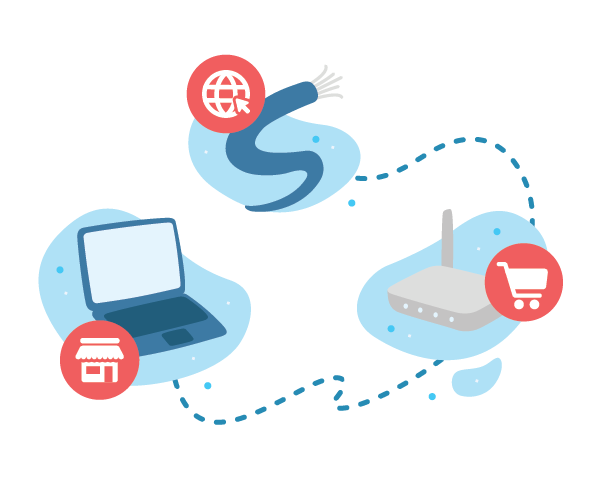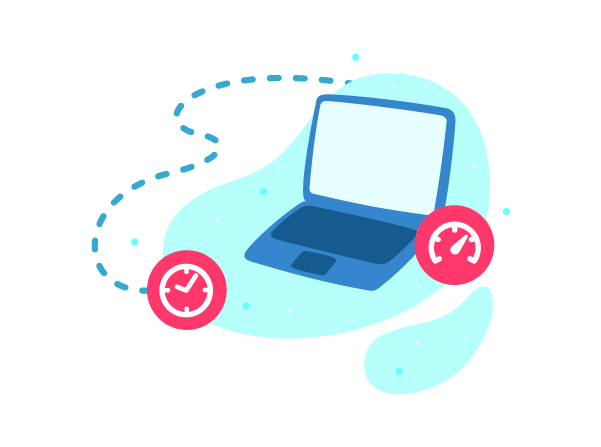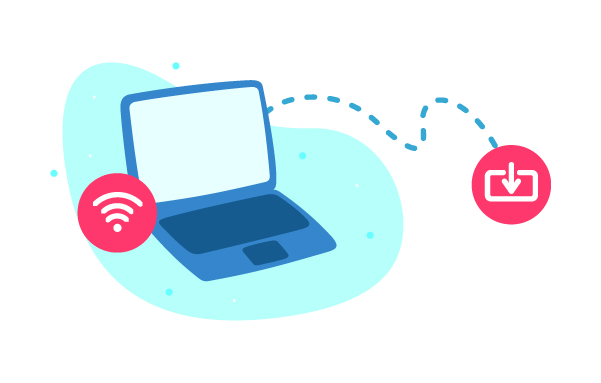
The National Broadband Network (NBN) is Australia’s wholesale internet provider. This means that when you sign up for an NBN plan, you must order the service through a telco (e.g. Telstra, Optus, TPG).

Are you ready to sign up to an NBN internet service?
If you have the internet at your small business but are not yet on the NBN, your telco will send you a letter telling you when the NBN is coming to your area.
You can also check NBN Co’s website to find out when it will be available.
If you don’t move to the NBN, then your existing phone line and internet services will eventually be permanently disconnected. This means that you may also lose your business phone number.
How do you choose an NBN internet provider?
Picking your speed
You’ll first need to decide what speed plan to choose. This will depend on how many people use the internet in your small business and how they use it. The more people using the internet at the same time, the slower it will go, so you will need a higher speed plan to prevent slow- downs.

If your business uses video conferencing, streams video and makes calls over the internet (known as VoIP calls), you’ll also need to look at faster NBN plans.
Telcos will usually advertise internet plans with two speeds:
- The top speed that the NBN internet plan can achieve.
- The typical speed of each NBN internet plan in the busy business period (9am-5 pm).

|
Plan |
Download speeds |
Upload speeds |
Suitability |
|
Standard (NBN 25) |
Up to 25Mbps |
Up to 5Mbps |
Suitable for basic web browsing, accessing cloud software e.g. accounting programs. May run slowly with multiple devices connected at once. |
|
Standard Plus (NBN 50) |
Up to 50Mbps |
Up to 20Mbps |
Suitable for most purposes such as video conferencing, updating your website, running an EFTPOS system. |
|
Premium (NBN 100) |
Up to 100 Mbps |
Up to 40Mbps |
For high-data users, i.e. those who send or receive large data files, use cloud-based storage, require high-res video. |
Picking your provider
Quickly compare internet plans from different telcos with comparator websites like WhistleOut and Finder.
Look for the Critical Information Summary (CIS) for each plan and use it to compare offers. These are located on all telcos’ websites and can be requested in-store.
The CIS contains information about the plan such as the price, fees for leaving the contract early, contract length, download limits
You can also see which telcos deliver the fastest speeds by checking the ACCC’s Measuring Broadband Australia website - measuringbroadbandaustralia.com.au
Your rights
Before you buy an NBN business plan, all telcos need to give you a one-page Key Facts Sheet that explains:
- Typical download speeds available during standard work hours
- That your NBN service won’t function during power failures
- That you need to check if your security alarm service is NBN compatible
- If you can keep your phone number
- Whether the speed plan you chose is available at your workplace
For your small business, you may also want to consider:
Connection
- Using a higher speed plan than you may use at home
- Connecting your computers through Ethernet cables - Wi-Fi is less effective as more users are added.

Service Level
- Business grade services can be more reliable. This is because the telco may better manage peak use and maintain speeds.
- Business grade plans may also include dedicated support teams to help with problems.

Backup Services
- Having mobiles on standby to forward calls to in case of an NBN outage.
- Backup power supply – because NBN connections don’t work in power outages.
- Storing data offsite, such as in a cloud account. If there is an NBN outage, this will allow you to still access your data from an internet connected device, such as a mobile phone.


Comments powered by CComment